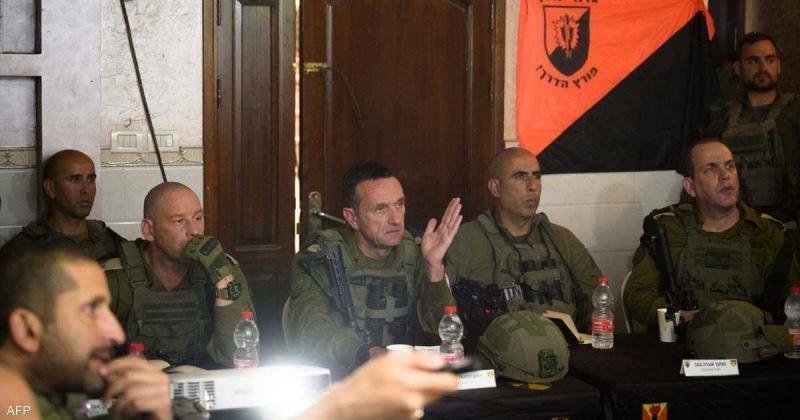A report prepared by the American public radio station "NPR" highlighted the way the Israeli army conducts investigations related to potential misconduct by its soldiers against civilians. The report cited an incident that took place on April 14, when thousands of Palestinians, mostly women and children, began walking from southern Gaza to the northern part of the strip after a rumor circulated that the Israeli army would allow safe passage for women, children, and the elderly. The report states that Israeli soldiers fired upon the crowds as they approached a checkpoint, resulting in the death of five people and wounding nearly twenty others, according to emergency personnel and journalists present at the scene. Following this, the Israeli army announced that the incident was "under review."
What does this mean? Ziv Stal, the executive director of "Yesh Din," an Israeli organization that provides legal protection for Palestinians, stated that "generally, not every incident or complaint is investigated in a criminal manner, but rather operationally." Stal added, "When the Israeli army is accused of violating international laws or its own rules of conduct, an internal agency known as the military prosecutor oversees the process."
"The agency begins by interviewing the involved soldiers via its lawyers, and these interviews are confidential and not intended at first to conduct criminal investigations," according to Stal. She explains that "the army grants privileges to the soldiers and assures them that the interviews will not be used for criminal investigations, allowing the soldiers to speak freely about what happened." Stal further noted that "there is no collection of evidence at this stage regarding any potential criminal act... thus, the approach is sometimes more operational than criminal."
Israeli officials are concerned about the possibility of the International Criminal Court investigating government leaders regarding potential Israeli war crimes in Gaza. The potential for arrest warrants against Israeli leaders highlights how the Israeli army investigates individuals accused of violating military conduct standards during wartime.
Each year, the Israel Defense Forces receives hundreds of complaints about misconduct, which has typically focused on its soldiers' actions in the occupied West Bank. However, since the beginning of the war with Hamas last October, complaints have ranged from soldiers firing on unarmed Palestinian refugees to an incident involving an attack on a convoy of the “Global Central Kitchen” aid organization, resulting in the deaths of seven of its staff members earlier last month.
According to human rights experts in Israel, the Israeli army has shown a lack of transparency and willingness to investigate its soldiers. Stal emphasizes that some of the biggest problems arise during the initial phase of internal investigations within the Israeli army. One of the most pressing concerns for her organization is the length of time the investigation process can take, often exceeding a year and sometimes much longer, leading to the potential lack of available evidence due to the lengthy duration, according to Stal.
Additionally, alleged victims are often not interviewed in these investigations until late in the process, says Israeli legal expert Smadar Ben Natan. Ben Natan adds that "the victim's testimony is often the first thing we think of as a basis for opening an investigation, but the opposite typically occurs. They (the Israeli army) usually listen first to what the soldiers have to say, and only afterward do they obtain testimonies from some victims."
Ben Natan explains that "from a legal perspective, when you gather all these elements according to how the Israeli army conducts investigations, it is difficult to reach fair conclusions."
In response to these findings, the Israeli army stated that its forces "operate according to the law, and thus are obligated to conduct a comprehensive examination of any allegation of legal violation, and every complaint is examined based on its subject, including through a criminal investigation if necessary."
However, data from the Israeli army at the end of 2022, reviewed by NPR, shows that complaints filed with the army rarely lead to substantive outcomes. Of the 1,260 complaints concerning Israeli soldiers harming Palestinians and their property between 2017 and 2021, only 11 complaints resulted in indictments, which represents less than 1 percent of all complaints.
The Israeli human rights organization "B'Tselem" is one of many organizations that have worked with the Israeli army to gather evidence for its investigations. Organization spokesperson Sarit Michaeli stated: "We would contact witnesses and refer them to military police." She added, "My colleagues would spend hours coordinating meetings between witnesses and military police for their testimonies, and at times, we would collect evidence and refer it."
After years of gathering evidence to assist the Israeli army in its investigations, Michaeli states that the organization has seldom seen any of its cases move beyond the preliminary investigation stage. Michaeli continued, "We've done this for many years and ultimately reached the conclusion that it is futile, regardless of what we did, the outcome was always the same: lack of accountability."
Michaeli indicates that the organization has completely stopped referring cases to the Israeli army since 2016. She emphasizes, "We reached the conclusion that continuing to refer cases to Israeli investigative bodies not only leads to counterproductive outcomes through lack of accountability, but also gives a false impression of the existence of an effective justice system."
Michaeli outlines that "B'Tselem" currently continues to gather evidence when Israeli soldiers kill or injure Palestinians but instead of referring it to the army, the group now publishes it on social media and through the independent press.
Earlier this month, Israeli officials told the "New York Times" that they expect the International Criminal Court to issue arrest warrants against members of the Israeli government, and possibly Prime Minister Benjamin Netanyahu, in relation to managing the destructive military operations conducted by Israel in the Gaza Strip. According to the American newspaper, the International Criminal Court is also considering bringing charges against leaders from Hamas.




